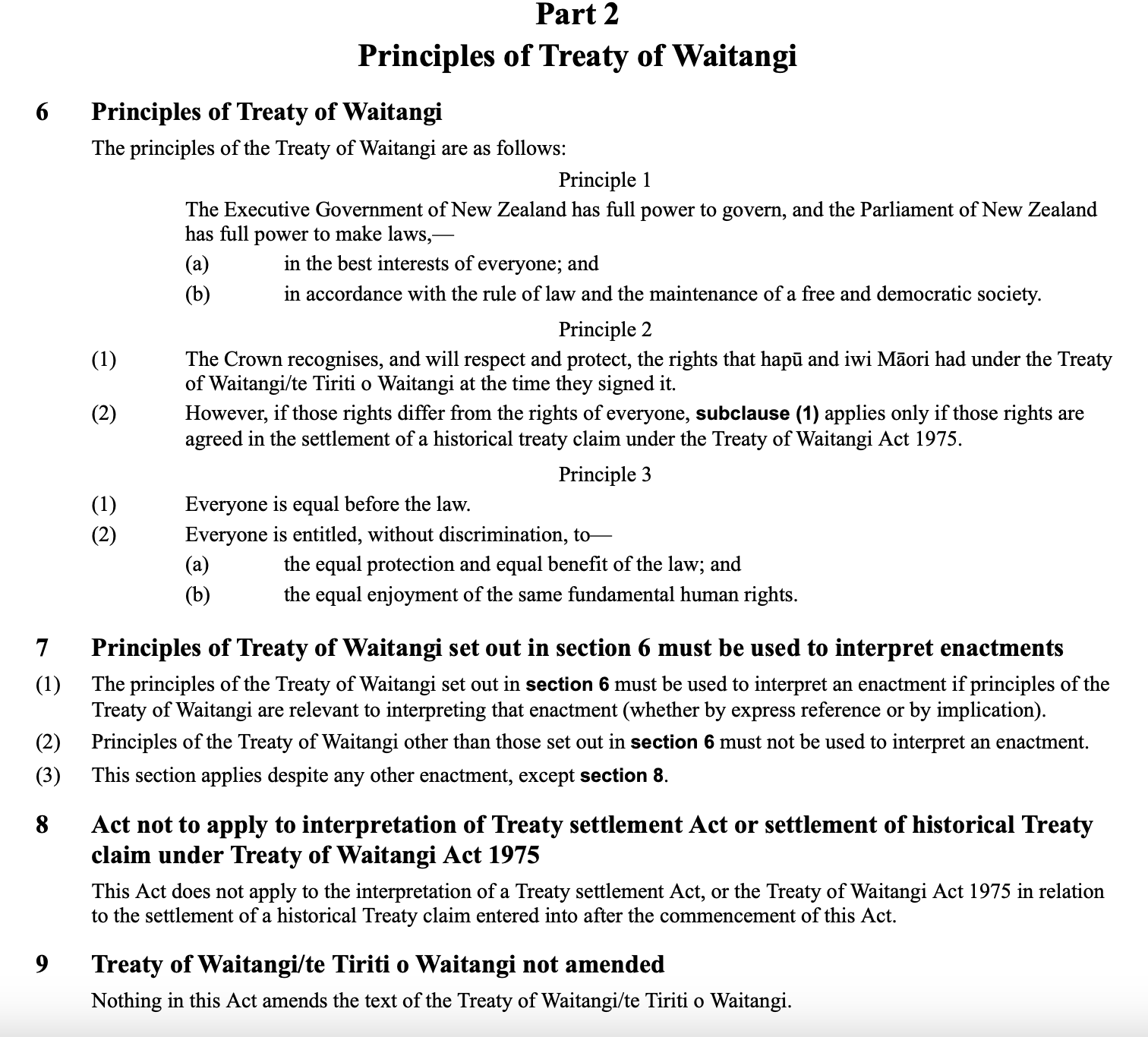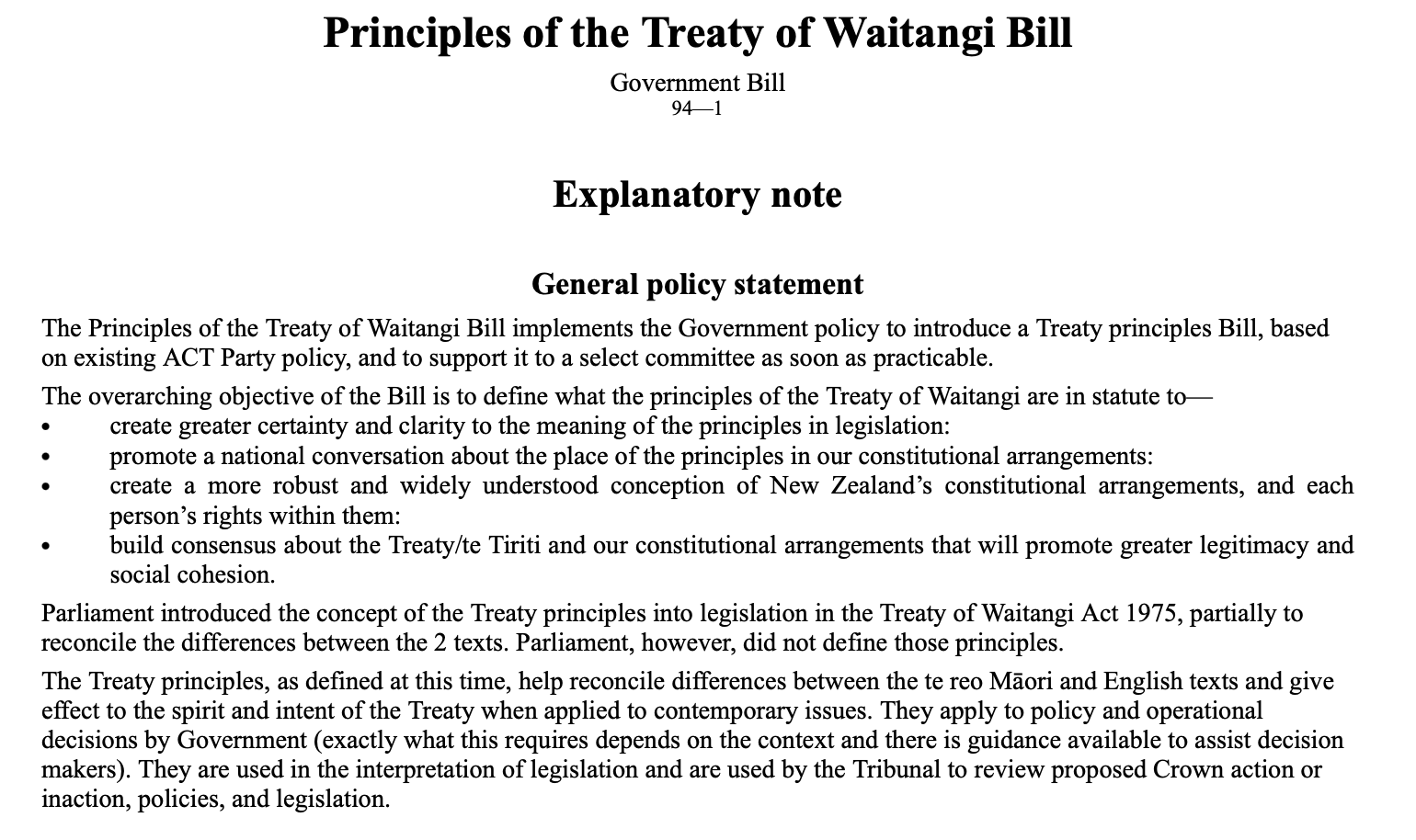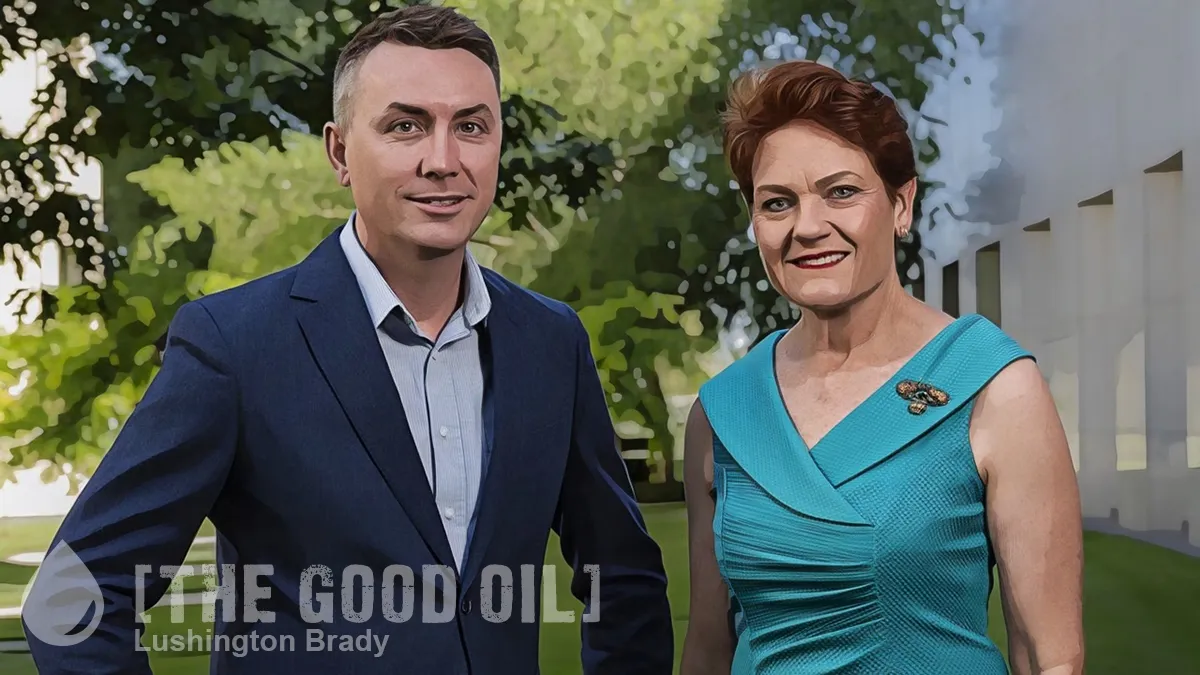Table of Contents
Because it’s a piece of BS.
First, there’s the main part of the bill:

Seems pretty fair, right?
But then there’s this.

This is rather misleading when it says parliament didn’t define those principles because although they haven’t been defined by parliament they have been pretty much defined by the judiciary.
Back in 1987, the New Zealand Māori Council bought a case against the Attorney-General:
“There was great concern at that time about the ongoing restructuring of the New Zealand economy by the then Fourth Labour Government, specifically the transfer of assets from former government departments to state-owned enterprises. Because the state-owned enterprises were essentially private firms owned by the government, there was an argument that they would prevent assets which had been given by Māori for use by the state from being returned to Māori by the Waitangi Tribunal and through treaty settlements. The Māori Council sought enforcement of section 9 of the State-Owned Enterprises Act 1986 which reads: "Nothing in this Act shall permit the Crown to act in a manner that is inconsistent with the principles of the Treaty of Waitangi".[12] The Court of Appeal, in a judgment of its then President Sir Robin Cooke, decided upon the following treaty principles:
• The acquisition of sovereignty in exchange for the protection of rangatiratanga.
• The treaty established a partnership and imposed on the partners the duty to act reasonably and in good faith.
• The freedom of the Crown to govern.
• The Crown's duty of active protection.
• The duty of the Crown to remedy past breaches.
• Māori to retain rangatiratanga over their resources and taonga and have all citizenship privileges.
• Duty to consult.”
One of the key principles is obviously the one saying that the Treaty established a partnership, which, as you may have noticed, is missing from the bill. And also the principle about retaining rangatiratanga, which means highest chieftainship or unqualified chieftainship, but is also translated as absolute sovereignty or self-determination. You might notice that, again, this is missing from the bill.
Don’t get me wrong here. I believe the principles are something that the Court of Appeal just pulled out of its you-know-what.
If you go with the Māori interpretation of the Treaty, it created a kind of tenant-landlord relationship (not a partnership), where sovereignty not ceded by the right to makes laws, etc, was given with Māori having an ‘oversight’ role: meaning in practice that Māori have the right of veto. This in exchange for Māori being given full rights as British citizens.
And if you go with the English version full sovereignty was ceded in exchange for Māori being given full rights as British citizens. No partnership.
So what’s so wrong about the bill? Simple: it runs roughshod over the judiciary. Here we’re talking about ‘separation of powers’.
“The Constitution Act 1986 recognises the three branches of government – the legislature (Parliament), the executive (Cabinet and ministers outside Cabinet, plus government departments) and the judiciary. Each operates independently of the others. This is known as ‘the separation of powers’.
The bill runs roughshod over the judiciary because it re-defines what the judiciary decided the principles are, which in turn redefines what the treaty means. And this is a big deal.
And that’s why the bill is BS and why there’s been such a fuss.









